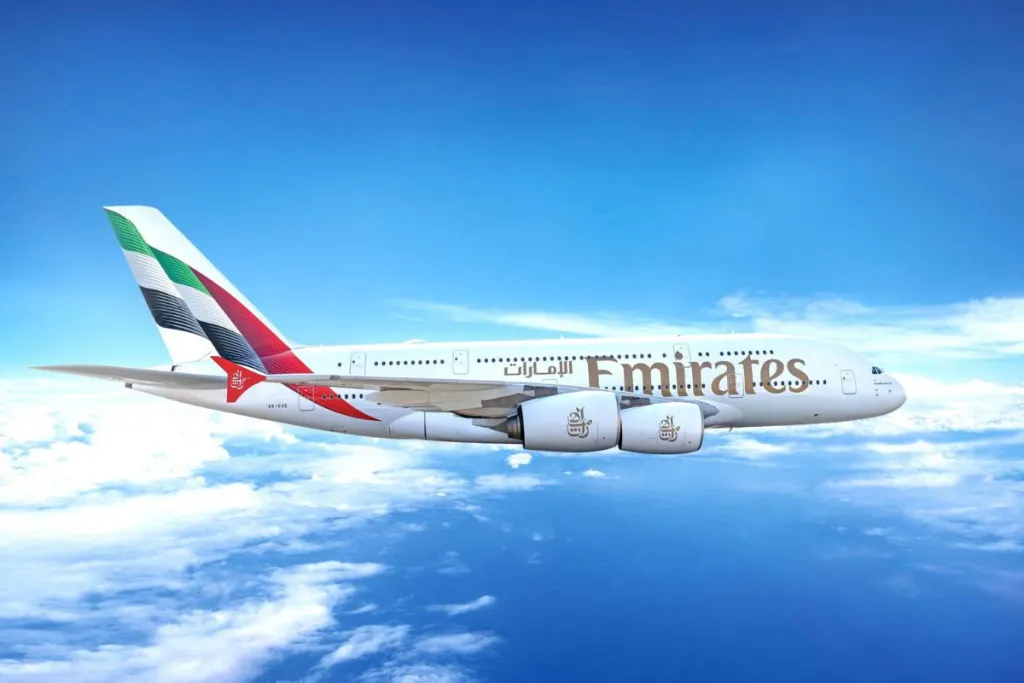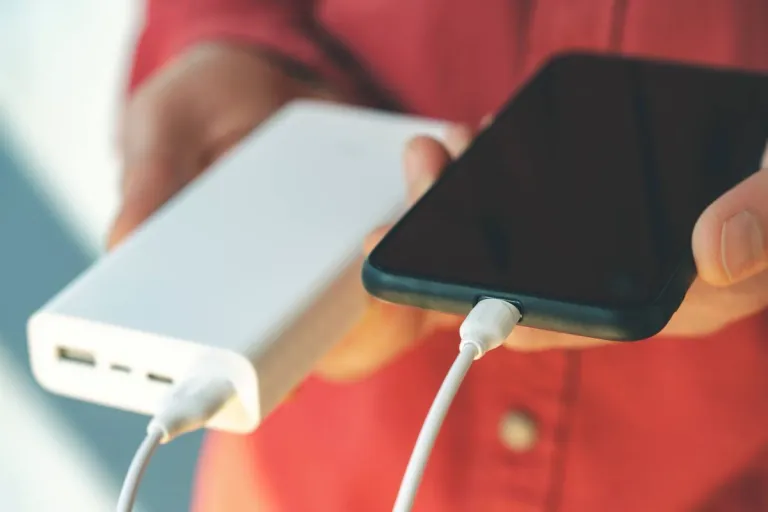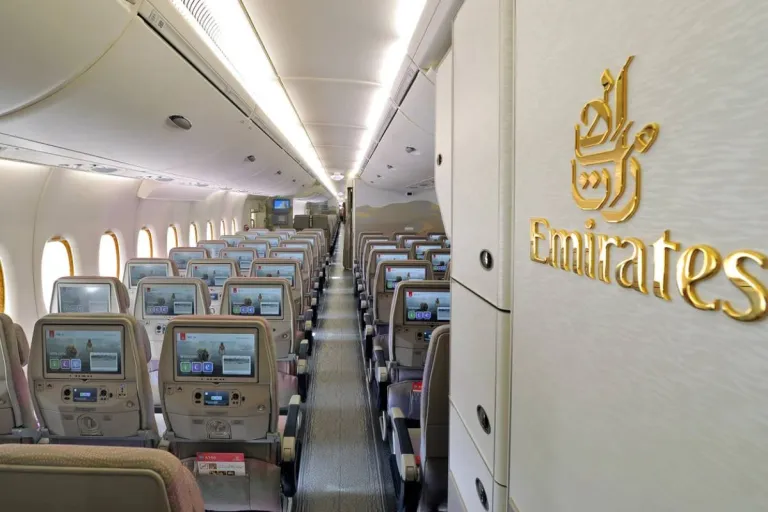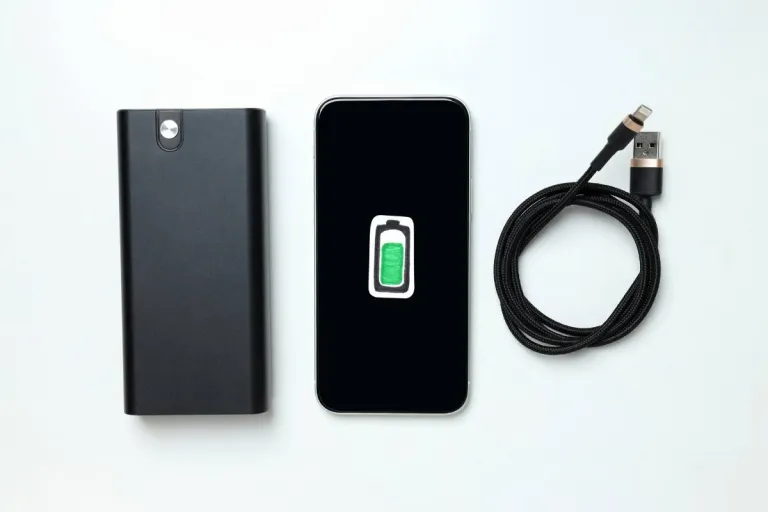It’s located between Peacehaven Campsite and Cradle Rock Genting Highlands, along Jalan Utama Genting Highlands
Emirates to Ban All Power Bank Use Onboard From 1 October 2025

For many travellers, especially those flying long-haul, a power bank is a trusted travel buddy. Whether it’s keeping your phone alive for in-flight entertainment, charging your tablet for a Qur’an recitation playlist, or ensuring your camera is ready for post-Umrah snapshots, it’s a must-have.
But from 1 Oct 2025, Emirates will introduce new rules that completely ban the use of power banks onboard their flights — and yes, this applies to everyone, including Muslim travellers heading to Makkah, Madinah, or other destinations via Dubai.
What exactly is changing?
 Image credit: Be Art | Canva Pro
Image credit: Be Art | Canva Pro
Emirates will still let passengers bring one power bank on board — but with strict conditions:
Only one power bank is allowed per passenger.
It must be under 100 Watt-hours (Wh) in capacity.
The capacity rating must be clearly marked on the device.
It must be carried in your hand luggage, not checked baggage (this rule already exists).
During the flight:
You cannot use it to charge any device.
You cannot charge the power bank using the aircraft’s power supply.
It must be stored in the seat pocket or under the seat in front of you — not in the overhead bin.
So, while you can still bring it, your power bank will essentially be “on holiday” during your flight.
Why is Emirates making this change?
 Image credit: Upgraded Points | Official Website
Image credit: Upgraded Points | Official Website
This isn’t about being inconvenient; it’s about safety.
Power banks use lithium-ion or lithium-polymer batteries. If these are overcharged or damaged, they can experience what’s called thermal runaway, a scary-sounding term for a chain reaction that causes the battery to overheat rapidly, potentially leading to fires, explosions, and even toxic gas release.
Many high-end devices like smartphones have built-in safety features to prevent overcharging. Unfortunately, many basic or budget power banks don’t, which increases the risk.
With the growing number of passengers using power banks, the aviation industry has seen more lithium battery-related incidents. Emirates’ safety review concluded that banning in-flight use and requiring specific storage will make it easier for cabin crew to access and extinguish a fire quickly if something goes wrong.
What this means for Muslim travellers
 Image credit: atlasstudio | Canva Pro
Image credit: atlasstudio | Canva Pro
If you’re flying with Emirates for Umrah, Hajj, or Muslim-friendly holidays, this new policy is something to plan around:
Pre-download your essentials: Whether it’s a Qur’an app, Islamic podcasts, travel dua reminders, or your favourite halal food guides, make sure they’re ready before boarding.
Charge before you fly: Fully charge your phone, tablet, and laptop at the airport or in the lounge.
Pack wisely: Since you can’t use your power bank in-flight, consider bringing extra charged devices if you rely heavily on electronics during long journeys.
Halal dining onboard: The good news? Emirates already serves halal-certified meals across its network, so your dining experience remains Muslim-friendly, just without the mid-flight top-up for your phone battery.
Also read: Sydney Cherry Blossom Festival 2025: Australia’s Biggest Cherry Blossom Festival Returns
Final thoughts
For Emirates, safety is non-negotiable. The airline’s decision may feel inconvenient, but it’s part of their proactive approach to protect passengers and crew from potential battery-related hazards.
For Muslim travellers, it’s a small adjustment that can be managed with a bit of planning. Think of it as a chance to enjoy the journey — maybe listen to a downloaded Surah Yasin, read a travel dua, or simply take in the view above the clouds, distraction-free.
After all, sometimes the best travel memories happen when we put our devices down.
Published at
About Author
Aimi Zulkiflee
Subscribe our Newsletter
Get our weekly tips and travel news!
Recommended Articles
Top Muslim-Friendly Things to Do at The Newest Antara Genting Highlands 13 Best Mosques Around The World Best Mosques Around The World – With so many mosques all over the world, most of those that we are used to seeing have the same architectural design, with minarets and other symbolic traditional elements. However, all around the world, the thought put into designing mosques are ever-changing – some with out-of-this-world creative outcomes, while […]
Muslim Travel Guide to Ladakh: 9 Must-Visit Spots From The Movie 3 Idiots Leh has more than just halal foods and mosque!
5 Mistakes to Avoid When Traveling During Shoulder Season (Especially for Muslim Travellers) Just beware of these common mistakes!
First 99 Speedmart Outside Malaysia Opens in Fuzhou – Here’s What’s Inside 99 Speedmart makes its first international move – Hello, Fuzhou, China!
Latest Articles
Mt. Fuji’s Iconic Cherry Blossom Festival Canceled for 2026: Essential Updates for Travelers Overtourism and tourists misconduct are the reasons behind this decision.
Seoul’s Majestic Palaces Open Their Gates for Free This Mid-February Plan your budget-friendly trip now!
Best Places to Stay in Kyoto 2026 : 10 Best Ryokan Hotels with Traditional Japanese Style the ultimate way to feel Kyoto’s old-world charm
Taiwan Cherry Blossom Guide 2026: Top 10 Spots, Forecast, & Hot Springs cherry blossom season is back!
The Ultimate Guide to Nakameguro Cherry Blossom Season: Tokyo’s Iconic Pink Wonderland must-visit when you're in Tokyo during sakura season!

